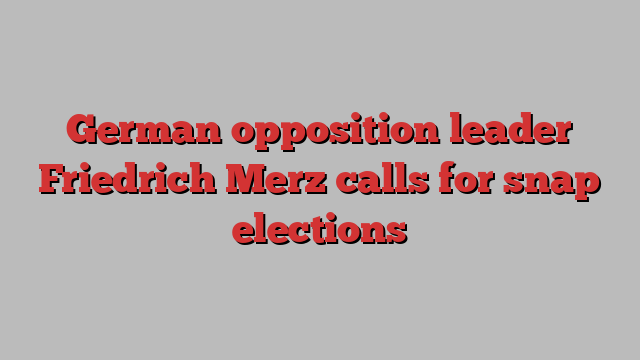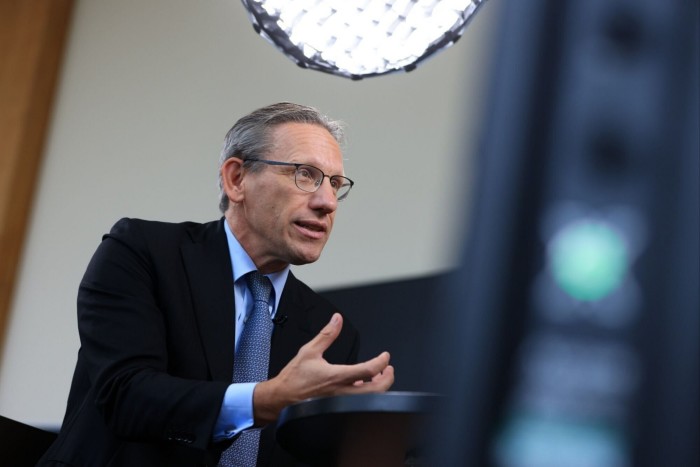
Unlock the Editor’s Digest for free
Roula Khalaf, Editor of the FT, selects her favourite stories in this weekly newsletter.
German opposition leader Friedrich Merz has called for snap elections as early as January following the collapse of Olaf Scholz’s government, as he warned that the country could not risk a long period of political uncertainty.
Merz, leader of the Christian Democratic Union, was speaking hours after Scholz broke up the governing coalition by sacking his finance minister, Christian Lindner, a move that marked the climax of a long-running row over economic policy.
Officials announced on Thursday that Lindner would be succeeded by Jörg Kukies, a former Goldman Sachs banker who has been one of Scholz’s closest advisers for the past six years.
Announcing the dismissal of Lindner late on Wednesday, Scholz said he would table a confidence vote in the Bundestag on January 15, which would pave the way for early elections in March.
But Merz said there was “no reason” to wait so long. He said his parliamentary group, which includes the CDU’s Bavarian sister party the Christian Social Union, had unanimously agreed to tell Scholz to hold a confidence vote “immediately, at the start of next week at the latest”. That would allow elections to be held in the second half of January.
“It’s important that we quickly give responsibility for the composition of the German Bundestag back to voters,” he said.
Germany faced “a whole series of obligations, conferences, decisions in the European Union that require a government that is capable of acting”.
“We simply cannot afford to have a government with no majority in Germany over several months and then have an election campaign stretching over more months and then possibly hold coalition negotiations over several weeks,” he said. “Things have got to happen quickly.”
Scholz said he sacked Lindner after the finance minister refused to suspend Germany’s “debt brake”, its constitutionally-anchored cap on new borrowing, in order to increase support for Ukraine as it battles Russian aggression.

Lindner, a fiscal hawk, said later that altering the debt brake would amount to “violating my oath of office”.
The row came at the end of a long-running dispute between the partners in Scholz’s coalition — his Social Democrats, Lindner’s pro-business Free Democrats and the Greens — over what policies to adopt to get Germany out of its economic malaise.
The country is facing its first two-year recession since the early 2000s and business leaders have demanded the government take urgent action to kick-start the economy.
Industry figures backed Merz’s demand for an earlier confidence vote, warning of the dangers of more uncertainty at a critical time for the German economy.
“We need clarity now, quickly,” said Wolfgang Grosse Entrup, head of the VCI lobby group for Germany’s chemicals industry. “We cannot afford months of stalemate and political standstill.”
Kukies was brought into government in 2018 after a long career in the private sector, serving as state secretary to Scholz when he was finance minister.
When Scholz became chancellor in 2021, he designated Kukies as his chief economic adviser. He also attended international summits such as meetings of the G7 and G20.